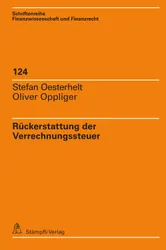In recent years, tax reporting on the effective tax rate ("ETR") of multinational enterprises has been widely debated. Annual reports presenting low ETRs created the impression that enterprises did not pay enough taxes compared to individuals or small and medium-sized businesses. Such financial reporting disclosures led to ongoing discussions about the suitability of the existing international tax system and gave rise to several global tax reforms initiated by the OECD. This study analyses the level of compliance with internationally applied best practice for tax reporting (on the ETR) under the IAS 12 in annual reports based on content analysis scores. It studies the correlations between the extent of compliance with tax reporting best practice and ETR values, market capitalisation, level of internationalisation, industry, and auditor. The author combines the empirical research with a normative approach and thus takes an inside-out perspective. The normative analysis interprets IAS 12 paragraphs in light of Swiss national and international tax law. Furthermore, the book discusses the impact of the OECD Global Minimum Tax Reform on tax disclosures and argues that the international tax reform will further increase the complexity of tax reporting.

Die Vermeidung der internationalen Doppelbesteuerung in der Schweiz am Beispiel der Anrechnung von ausländischen Quellensteuern
Livio Bucher
book
Rückerstattung der Verrechnungssteuer
Stefan Oesterhelt, Oliver Oppliger
book
Die Komplexität des Steuerrechts : Eine Auslegeordnung
Ralf Imstepf
book
Panoptikum des Steuerrechts : Festschrift für Madeleine Simonek
book
Internationale Funktionsverlagerungen im harmonisierten Steuerrecht der Schweiz : Unter besonderer Berücksichtigung der Bestimmungen zur Aufdeckung stiller Reserven bei Beginn und Ende der Steuerpflicht
Patrick Schmid
book
Tax Reporting on Effective Tax Rate (IAS 12) : Interpretations, New Initiatives, International Best Practice and Correlations
Eva Frehner
book
